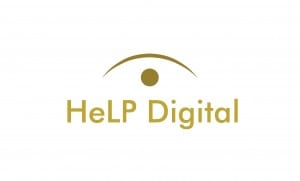Studying at PCPH,UCL: An international PhD student tips on surviving your PhD
By Nathan Davies, on 10 January 2017
In this post Ghadah Alkhaldi who was recently awarded her PhD from PCPH talks about her time here and how to survive your PhD as an international student.
Doing a PhD is not an easy, simple, or stress-free experience. PhD students go through years of endless deadlines, no breaks during weekends and quite often question their sanity about why they chose to do a PhD in the first place
I do not think I appreciated the challenges of being a PhD student until I started mine three years ago. My experience at PCPH was also unique in a way. I was from Saudi Arabia -a socio-cultural context that is quite different from that of the UK; a non-English native speaker; and a novice researcher (I’ve always been a student).
I thought that if I was able to do a one year’s master programme at a UK university, it would not be that difficult to do a 3 year PhD. This assumption -I realised later on- was not exactly right…
Fortunately, I was lucky to do my PhD within PCPH, where I found a supportive, friendly and extremely helpful environment. Working in such an environment is an important element of survival for any PhD student, but specifically for an international student like myself. Doing a PhD is a lonely journey as my supervisor told me when I first started my PhD and she was right. It is especially lonely when you do not have the support circle you are used to your whole life, for example family and friends.
Hence, any PhD student needs to find a supportive and understanding environment, somewhere where there are researchers who were just recently awarded a PhD or other PhD students.
And that is my first tip for surviving your PhD: a supportive and helpful environment!
Indeed, I made sure to work most of my time in my office surrounded with other PhD students and early career researchers. They provided me with the professional and personal support and advice that I needed to maintain my sanity and ensure my PhD progressed well.
Another piece of advice is to read, attend talks and discuss research other than your own topic. It will inspire you and may help add an element of creativity to your research. It will also deepen your understanding of the amazing research culture of the UK, appreciate the variety of research conducted all around the country, and provide you with good networking opportunities.
And do not ever forget to focus completely on finishing your PhD. Do not be distracted with other interesting non-PhD related projects. If you get distracted, there is a big possibility that in ten-years time, you might find yourself still a PhD student instead of a senior researcher in your field of choice. Seriously, I have seen that happen before.
My final tip is to make sure you have a good justification for any decision you make about the research in your PhD. Never decide on doing something whether it is related to collecting data, analysis methodology or writing up that does not make sense to you or you are not convinced by it, because you will need to defend it and defend it well. It is your PhD after all. Any PhD student should never utter these words ever: ‘my supervisor told me so’.
Finally, enjoy your PhD. Find any way to enjoy it, because you will live, breathe and dream about your PhD for three to four years. My method of enjoying my PhD was by celebrating the small successes no matter how insignificant they might have seemed to be!
There are many tips online and different published books on how to survive a PhD, I did not repeat those ones. I only shared what helped me pass and pass successfully.
 Close
Close





 The programme consists of an interactive website which teaches children what to expect from surgery, and skills for coping with anxiety prior to the surgery. There are games which allow children to place equipment on animated animals and deep breathing exercises to encourage calm. The team have published findings from their randomized controlled trial of the program with children age 2 to 7 years old undergoing outpatient elective surgery. They found that children and their families found the programme helpful, easy to use and it led to a reduction in preoperative anxiety.
The programme consists of an interactive website which teaches children what to expect from surgery, and skills for coping with anxiety prior to the surgery. There are games which allow children to place equipment on animated animals and deep breathing exercises to encourage calm. The team have published findings from their randomized controlled trial of the program with children age 2 to 7 years old undergoing outpatient elective surgery. They found that children and their families found the programme helpful, easy to use and it led to a reduction in preoperative anxiety.
 ost Orla O’Donnell from the
ost Orla O’Donnell from the 
